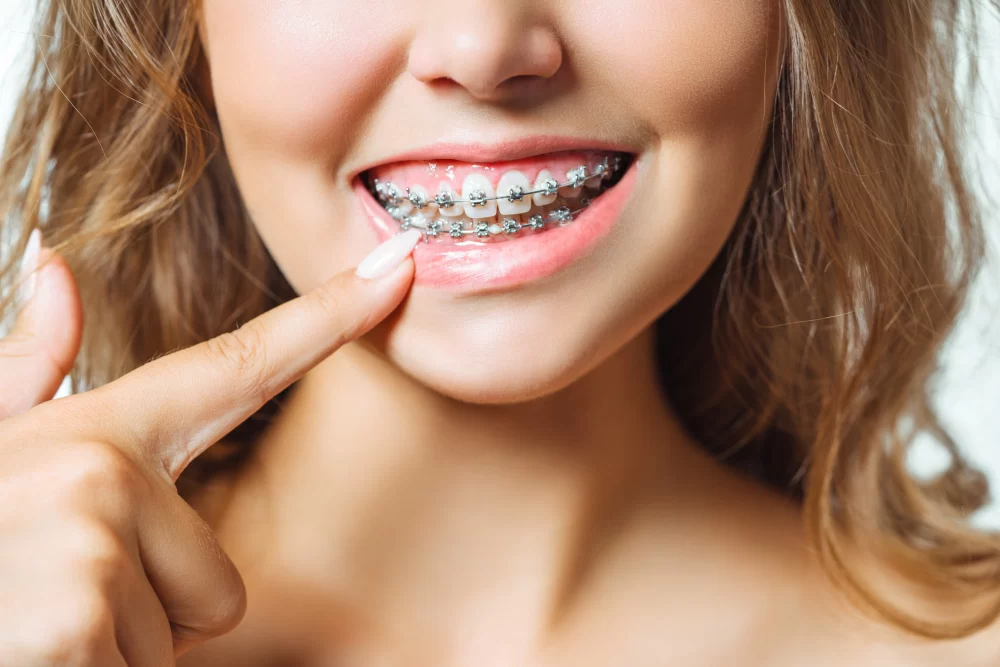
How to Maintain Your Oral Health During Orthodontic Treatment: Tips for Braces Care
- 1. The Importance of Oral Health During Orthodontic Treatment
- 2. Proper Brushing Techniques for Braces
- 3. Flossing with Braces: What You Need to Know
- 4. How Your Diet Affects Your Braces and Oral Health
- 5. Common Oral Health Problems During Orthodontic Treatment
- 6. Professional Dental Care During Your Treatment
1. The Importance of Oral Health During Orthodontic Treatment
When you’re undergoing orthodontic treatment, whether it’s traditional braces, clear aligners, or other forms of treatment, maintaining your oral health is crucial. I remember when I first got my braces, it was overwhelming to think about how to care for my teeth while adjusting to the metal wires and brackets. But over time, I’ve learned that keeping your teeth and gums healthy throughout the process can actually make the treatment faster and more effective. Oral hygiene also prevents complications like tooth decay, gum disease, and other problems that can arise with braces.
Maintaining good oral health during orthodontic treatment not only keeps your teeth and gums healthy but also ensures that your braces do their job in realigning your teeth properly. The last thing you want is to finish your treatment and find out that you have cavities, plaque build-up, or gum issues that could have been avoided.
2. Proper Brushing Techniques for Braces
One of the most common questions I had when I first got braces was how to brush my teeth properly. At first, it seemed like brushing with braces was going to be a real challenge, but once I figured out the right technique, it became second nature. The key to proper brushing is to use a soft-bristled toothbrush and brush after every meal to prevent food particles from getting stuck in your braces.
I recommend holding your toothbrush at a 45-degree angle to your gums and brushing in small circular motions around the brackets and wires. Make sure to brush both the front and back of your teeth, as well as along the gumline. Don’t forget to brush your tongue and the roof of your mouth to ensure a clean, fresh feeling.
In addition, using an interdental brush or a proxy brush is a great way to clean between the brackets and wires, as your regular toothbrush may not be able to reach those hard-to-access spots. This has made a big difference for me in preventing plaque build-up, and I’ve noticed that my teeth feel cleaner throughout the day.
3. Flossing with Braces: What You Need to Know
Flossing is an essential part of maintaining oral health with braces, but it can seem tricky at first. I know it was frustrating when I first tried to floss with braces – the floss wouldn’t slide easily between the wires, and I couldn’t seem to reach all the spots I wanted to. But over time, I discovered a few simple tricks to make flossing easier and more effective.
The best method I’ve found is to use a floss threader. This is a small plastic device that helps you thread the floss under the archwire, making it easier to reach between your teeth. I also use waxed floss because it’s more durable and less likely to break. With a little practice, I was able to floss normally, even with the added challenge of the brackets and wires.
It’s important to floss at least once a day, preferably before bedtime. This helps remove food particles and plaque from between your teeth and around your braces, reducing the risk of cavities and gum disease. I’ve found that this step has been crucial in keeping my teeth healthy throughout my orthodontic treatment.
4. How Your Diet Affects Your Braces and Oral Health
What you eat during orthodontic treatment can have a big impact on your oral health. I quickly learned that some foods are more likely to damage my braces, while others can contribute to plaque build-up and decay. When you’re wearing braces, you should avoid sticky or hard foods that can damage the wires and brackets. Foods like caramel, chewing gum, popcorn, and hard candies can get stuck in your braces or even break parts of them.
On the flip side, I made sure to eat more teeth-friendly foods, such as fruits, vegetables, dairy, and lean proteins. These foods help keep your teeth strong and promote healthy gums, which is essential when wearing braces. I also found that drinking plenty of water throughout the day helps wash away food particles and bacteria from your mouth, helping you maintain a cleaner, healthier environment for your braces.
Another tip I picked up along the way is to avoid sugary beverages like soda and fruit juices, as these can lead to plaque build-up and cavities. I tried to opt for water or milk instead, and if I did have a sugary drink, I made sure to brush my teeth afterward to reduce the risk of damage.
5. Common Oral Health Problems During Orthodontic Treatment
During my time with braces, I encountered a few common oral health problems, but luckily, they were all manageable with the right care. One issue I faced was gum irritation and soreness around the brackets. This is totally normal when you first get braces, as your gums are adjusting to the new pressure and rubbing against the wires. I used orthodontic wax to cover the brackets and relieve the irritation, which worked wonders in reducing discomfort.
Another issue I dealt with was white spots on my teeth, which are a sign of early enamel erosion. This can happen when plaque builds up around the brackets and is not properly removed. To avoid this, I made sure to be extra diligent with brushing and flossing, and I also used fluoride mouthwash to strengthen my enamel and prevent any long-term damage.
6. Professional Dental Care During Your Treatment
Even though I took care of my teeth at home, I still visited my dentist regularly for cleanings and check-ups throughout my orthodontic treatment. This is essential for keeping your teeth and gums in good condition. Your orthodontist or dentist can spot problems early on, such as signs of decay or gum disease, and help you address them before they become serious.
In addition to regular dental visits, I recommend scheduling an appointment with your orthodontist if you experience any issues with your braces, such as broken wires, loose brackets, or discomfort that doesn’t go away. I found that timely visits helped prevent minor problems from becoming major ones.
If you’re looking for more tips on maintaining your oral health during orthodontic treatment or need assistance with your braces care, I highly recommend checking out Dentistry Toothtruth, where you can find expert advice and products to support your treatment. Keeping your teeth healthy throughout orthodontic treatment is not only possible – it’s essential for achieving the smile you’ve always wanted.







 Aspen Dental - Warwick, RI4.0 (600 review)
Aspen Dental - Warwick, RI4.0 (600 review) Dentist Riverside - TranscenDental Smiles5.0 (274 review)
Dentist Riverside - TranscenDental Smiles5.0 (274 review) Cherokee Family Dental4.0 (585 review)
Cherokee Family Dental4.0 (585 review) Universal Dentistry4.0 (144 review)
Universal Dentistry4.0 (144 review) Oradell Family Dental4.0 (138 review)
Oradell Family Dental4.0 (138 review) CAMcare Health Corporation- Clementon4.0 (341 review)
CAMcare Health Corporation- Clementon4.0 (341 review) The Importance of Oral Health Education During Pregnancy for a Healthy Pregnancy
The Importance of Oral Health Education During Pregnancy for a Healthy Pregnancy Best Tips for Brushing Your Teeth Properly for Healthy Gums: Essential Techniques for Oral Health
Best Tips for Brushing Your Teeth Properly for Healthy Gums: Essential Techniques for Oral Health Why Skipping Dental Checkups Can Lead to Bigger Oral Health Problems
Why Skipping Dental Checkups Can Lead to Bigger Oral Health Problems Advantages of Porcelain Dental Restorations
Advantages of Porcelain Dental Restorations How Can Diabetes Cause Tooth and Gum Problems? Preventing and Managing Oral Health Issues
How Can Diabetes Cause Tooth and Gum Problems? Preventing and Managing Oral Health Issues Healthy Habits for Promoting Good Oral Health and Hygiene: Tips for a Healthy Smile
Healthy Habits for Promoting Good Oral Health and Hygiene: Tips for a Healthy Smile